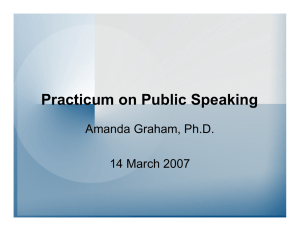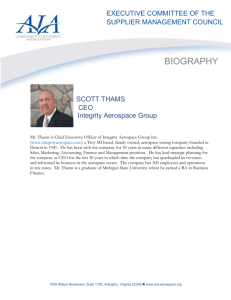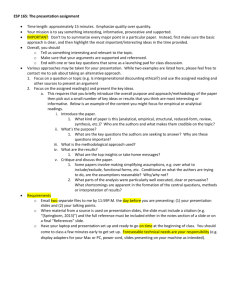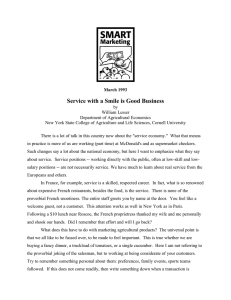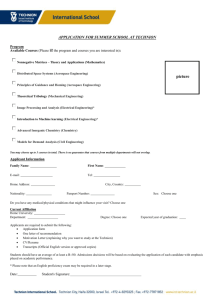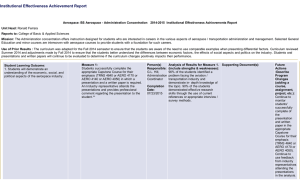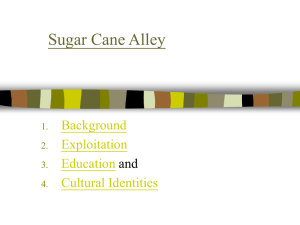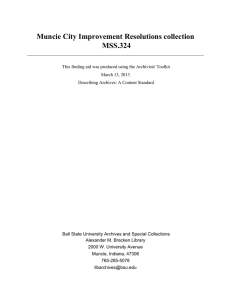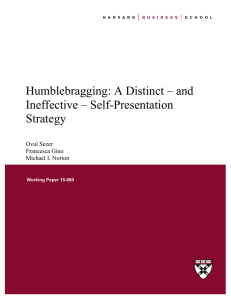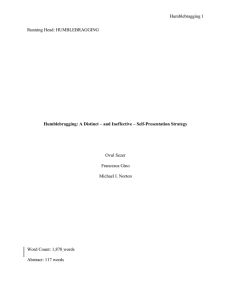What You Say
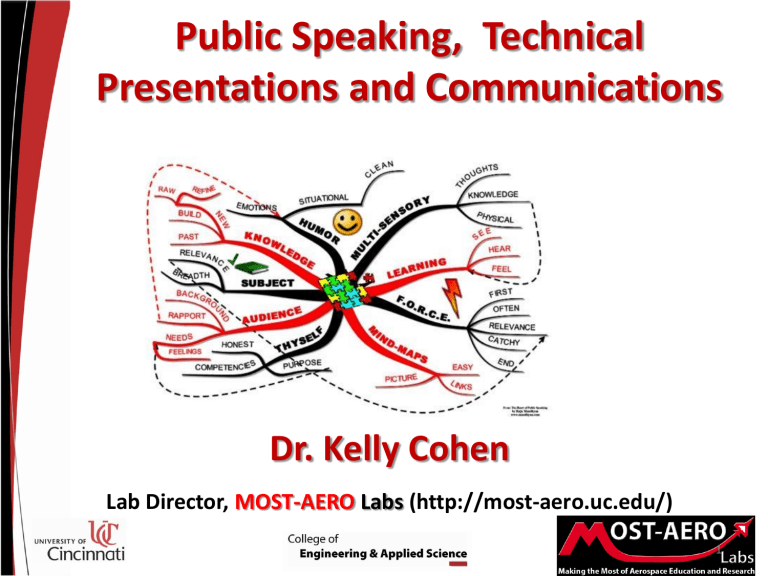
Public Speaking, Technical
Presentations and Communications
Dr. Kelly Cohen
Lab Director, MOST-AERO Labs (http://most-aero.uc.edu/)
1
Dr. Kelly Cohen - Background
• Joined UC/ Aerospace in Fall 2007.
– New to academia
– 22 years of experience as an aerospace engineer specializing in UAV Systems, linguistic reasoning, artificial learning, modeling and optimization of complex systems
• My vision – Developing an effective environment to nurture creative thinking applied to “intelligent” aerospace systems while addressing the needs of the national civilian and military organizations
2
Acknowledgement
Practicum on Public Speaking Amanda
Graham, Ph.D. 14 March 2007
3
Big Three of Public Speaking
• Substance
• Style
• Sincerity
• Note: “of the three, Sincerity is most important. This is the secret weapon
of a good speech, THE MAGIC SWTCH” – M.D. Japheth
• So basically, in a nutshell, Sincerity is being real, truthful, authentic,
honest and good in your thoughts, actions, and words.
4
First Rule of Public Speaking !
• Audience, audience, audience
– Who are they?
– What are their priorities?
– How is your work relevant to them?
– What assumptions are they operating with?
• Listening is hard work; your job is to make it easier
5
Three Major Components of Public
Speaking
• What you say
• How you organize what you say
• How you deliver what you say
6
What You Say
• What is your purpose?
• What were your methods?
• What are your most important claims/findings?
• What is the best evidence for your claims/findings?
• What do you recommend?
• How do all these connect with your audience?
7
How You Organize What You Say
• Tightly connected to what you say
• Logical beginning, middle, and end
• Explicit roadmap
• Clear transitions and signposts throughout (think bridges and freeway exits)
“If the audience doesn’t know where they are, they become tired much more easily.”
Alley 2003
8
Be Repetitive -Strategically
• Use your conclusion to summarize and emphasize key points
• Reinforce importance and relevance of your message
9
How You Deliver What You Say
• Style of language
• Style of presentation
• Body language
• Voice
10
Language
• Use everyday language
• Avoid jargon – or, if necessary, define terms
• Add life with language, such as metaphor/analogy, but don’t overdo it
11
Presentation Style
• Extemporaneous (carefully prepared but delivered without notes or text) – not the same as impromptu (suggesting improvisation)!
• With visual aids
12
Body Language: Posture
• Posture
– Attentive
– Professional
– Avoid slouching
13
Body Language: Movement
• Movement and gestures
– Keep under control
– Avoid pacing
– Avoid fidgeting, playing with pens, hair, etc
14
Body Language: Eye Contact
• Eye contact
– Make it
– Vary it
– Avoid scanning and too much focus on one or two people
15
Body Language: Facial Expression
• Facial expression
– Positive
– Animated, as appropriate
– Show your enthusiasm
16
Body Language: Dress
• “Business Casual”
– Clean, neat, professional
– Less formal than a suit; more formal than jeans
– Today’s models
17
Voice
• Clearly – be loud enough
• Slowly – enunciate
• Pauses sound longer to you than to audience
• Watch out for verbal fillers – um, ah, so, you know…
18
Benefits of Presentation Slides
• Important human consideration…
– Hear: 10%; See: 20%
– Hear and See: 50%
• …when effective!
• Serves as record and reference after the presentation
19
Design Basics 1
• Use Arial or Calibri
•
Avoid serif font (i.e. times new roman)
• Less is more – for words and images (white space is your friend)
20
Design Basics 2
• Use color judiciously
• Ensure strong contrast between type and background -black on yellow is the quickest combination to read
• Avoid combining red, green, and brown; avoid “hot” backgrounds
21
Assertion-Evidence Design
• Audience reads from top left toward bottom right
• Use headline to state a claim
• Use rest of slide to illustrate claim with clear, concise images and words
• Adds approximately 10 percentage points to scores on recall tests (Alley 2005)
22
Recommendation
• Michael Alley
– Virginia Tech
– The Craft of Scientific Presentations 2003
– http://www.writing.eng.vt.edu/
– Examples, templates, guidance on scientific posters as well as slide presentations, references and resources
• Public Speaking: A Primer (SQL Skills) http://www.sqlskills.com/blogs/paul/post/Public-speaking-about-SQL-Server-A-Primer.aspx
23
Questions
24
REFERENCES
• http://ocw.mit.edu/courses/chemistry/5-92-energy-environment-and-society-spring-
2007/lecture-notes/prac_on_pub_spea.pdf
25
